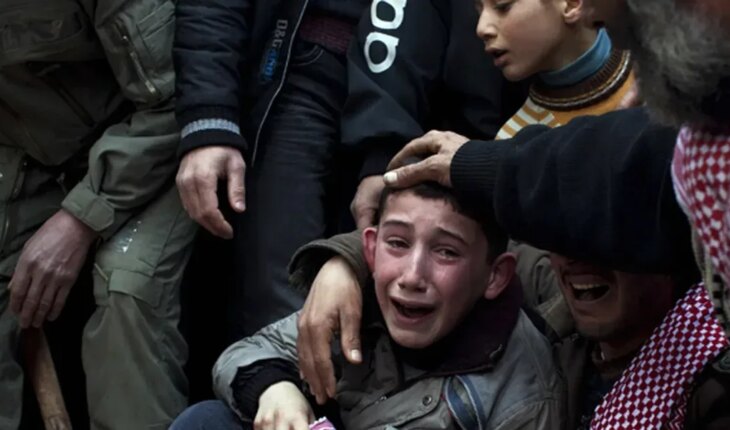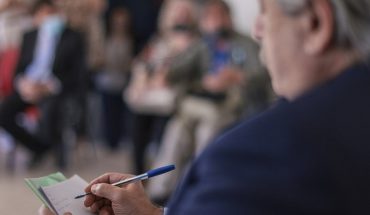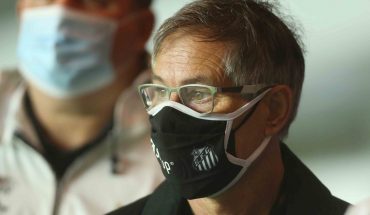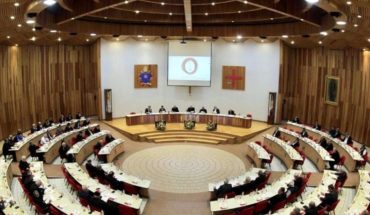Two Argentines were awarded the Pulitzer Prize. Argentine writer Hernán Díaz and Associated Press photographer Rodrigo Abd were part of the team that covered the devastation of Ukraine caused by the Russian invasion. The Pulitzer is awarded by Columbia University.Hernán Díaz won the prestigious prize in the Fiction category. He did so with his novel “Trust,” originally published in English and translated into Spanish as “Fortuna.” Diaz writes in English. Born in Buenos Aires in 1973. Two years later, his family went into exile in Sweden, he returned for a while to Argentina, then lived in London until he settled in New York, where he spent most of his life. He holds a Ph.D. from New York University and works at Columbia University. As an essayist he addressed the work of Borges. His first novel, A lo lejos (2017), was a finalist for this same prize, the Pulitzer.According to the jury, Fortuna is “a fascinating novel set in the America of yesteryear that explores family wealth and ambition through narratives linked in different literary styles, a complex examination of love and power in a country where capitalism is king.” In addition, it was chosen by media such as The New York Times and The New Yorker as one of the books of 2022, and praised by former President Barack Obama.La Argentine essayist Hinde Pomeraniec described it as a novel “divided into four books that emulate various genres _novela nineteenth-century in the style of Henry James or Edith Wharton, unfinished biography, Mémoire and Diary íntimo_ that fascinates by its overflowing imagination, by the attractive historical and economic documentation that it is possible to read in its pages and by the construction of a unique and unforgettable literary artifact”. It will soon be made into a miniseries starring Kate Winslet on HBO. Weeks ago, Diaz came to Argentina to present “Fortuna” at the Malba library. Interviewed by Malena Rey, he said: “If I did a lot of research for the novel? Research is a word that comes from the hard sciences, from disciplines at stake with truth. In literature we have a better method whose word is to read. Reading, which does not obey a reverential fetish and approaches the game. On the other hand, this novel is not a docufiction, it is a fiction.” In the story patriarchy appears as a problem: “The character who is a revolutionary activist is at home a reactionary Italian. It was very important to me to point out that machismo crossed the classes in a transversal way.” He also said that most American novels about money “are about the rich, about class differences, they are in the suburbs of money, in their surrounding areas.” “It has to do with American Calvinism, those people who were too religious people to live in England and had to go to America to be able to live in their religion. His doctrine stated that making money on earth had a fruitful correlation in heaven. Maybe that’s why novels about finance capital have no interest, or finance capital has been busy censoring.” A Ukrainian mother bids farewell to her son at the Mykulychi cemetery on the outskirts of Kiev. Another Argentine Pulitzer Prize-winning photographer Rodrigo Abd. He is part of the team of seven photographers who were distinguished for their coverage of the war in Ukraine. In 2013 he also won the same award given to him and other colleagues from the same agency for their record of the Syrian civil war.On this occasion, as announced by Columbia University, 15 photos taken by him, Felipe Dana, David Goldman, Emilio Morenatti, Nariman El-Mofty, Bernat Armangue and Vadim Ghorda were recognized. “Each one from different places,” Abd told the newspaper La Nación, where he worked. Abd stressed the importance of the award “because of the difficulty involved in covering the war,” in which many journalists died. It was great teamwork. We were helped by everyone: Ukrainians who took us to the places, by cooks who were in the hotel, by civilians, survivors who showed us where things had happened. A huge team of people who then edited the photos, sent them to the contest, people who helped us to have the credentials, to see how the logistics were to get to Kiev in the middle of a place where they bombed every day and we had no way to get there. A whole host of logistical issues in a place like Ukraine in the middle of the war are very difficult to resolve. That a work as individualistic as photography ends up being rewarded by teamwork, seems to me to have double merit”. Abd also opined that it was “a coverage muy complete, for the magnitude of the story. A team in Mariupol at the beginning of the war, then the siege of Kiev, in the last battles in the Donbass area. And it has shown, which I think is what moves us the most, the pain of the civilians who are left in the middle of the war. And the Russian invasion. Being able to portray those who suffer the most, I think it’s one of the pillars of photojournalism, and I think the team did that.”
Two Argentines, writer Hernán Díaz and photographer Rodrigo Abd were awarded the Pulitzer Prize
May 9, 2023 |





